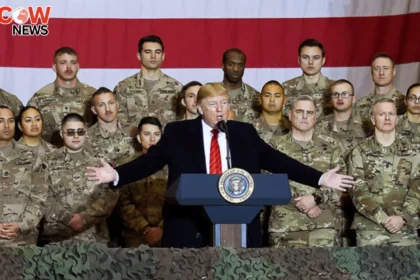Austin(The COW News Digital) In a controversial move, Texas Governor Greg Abbott has announced a ban on two major Muslim organizations, declaring them as terrorist entities. The groups affected are the Muslim Brotherhood and the Council on American-Islamic Relations (CAIR), both of which have significant presence in the state.
The ban includes restrictions on individuals affiliated with these organizations from purchasing property in Texas. Officials cited security concerns as justification for the unprecedented action, though neither organization is listed as a terrorist entity by the U.S. federal government.
Read More:
- Late-Night Dinners Linked to Higher Blood Sugar Risk
- Asia Cup 2025 Super Four Tickets at Shocking Prices
According to local media reports, this decision has sparked widespread criticism for targeting communities based on religion rather than documented evidence. Legal experts have questioned the legality of the governor’s executive order, noting potential violations of constitutional protections and civil rights.
The Council on American-Islamic Relations (CAIR) strongly condemned the move, describing it as “baseless, unlawful, and openly Islamophobic.” In a statement, the organization accused Governor Abbott of targeting Muslims using conspiratorial narratives, warning that it will pursue legal action if the order is enforced as policy.
Civil rights advocates have also voiced concern, highlighting the potential chilling effect on the Muslim community in Texas. They argue that such measures could foster discrimination, social exclusion, and heightened surveillance without tangible proof of wrongdoing.
Observers note that this action comes amid a broader national debate over security, religious freedom, and the limits of state power. While the governor’s office maintains that the ban is necessary for public safety, critics argue that singling out specific religious groups risks undermining the principles of equality and due process.
The affected organizations have pledged to challenge the ban in court, seeking to overturn what they describe as an unjust and discriminatory executive order. Legal proceedings are expected to scrutinize both the constitutional and procedural validity of the governor’s decision.
As this development unfolds, attention is likely to remain on Texas, with national and international observers monitoring the implications for civil rights, community relations, and the precedent it may set for other states considering similar measures.








